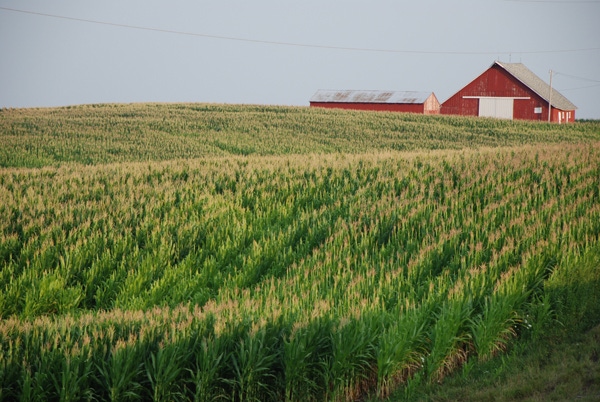
Recently, I spent three days in the Raleigh-Durham area of North Carolina with three groups of young farmers. One of the speakers was Richard Linton, Dean of the College of Agriculture at NC State (and home of the Wolfpack). His topic was the attributes of leadership he has observed over the years. Dean Linton commands respect and I would characterize him as a builder and a visionary.This is a nice contrast to many university administers who are caretakers, maintaining the status quo. During his tenure, he has built a very successful program in research and extension, but has not forgotten his roots or the importance of an undergraduate education. Let’s examine a few of the attributes he highlighted.
First, the Dean shared that he observes leaders to be relational and relationship-oriented.Further, they attempt to build trust with those around them.Today’s leaders realize the importance of collaboration, allies, and numbers. Often, the leaders of the past were fiercely independent, restricting their advisors to just a chosen few, if any.
Next, Dean Linton identified leaders as strategic instead of tactical.He described their ability to understand the world around them and retain that which is applicable to their situation. In other words, leaders have the ability to sift through large amounts of information and clutter. Whether it is social media or a myriad of data, determining what is important is an invaluable attribute of leadership.
Another quality on the Dean’s list was being a good listener. This is probably one of the most under-respected characteristics of a leader. The ability to listen and observe nonverbal communication is a critical skill. In addition, leaders recognize that technology can inhibit this valuable skill; and in many situations, good leaders silence or ignore their mobile devices during discussions.
The Dean also mentioned that leaders often feel a little uncomfortable. Specifically, he stressed the importance of being challenged and engaging in activities that force one to think critically. “When they are inside the box, they get outside.” he said.
One attribute of leadership clearly exhibited by Dean Litton was passion. He is passionate for the agriculture industry, his educators, scholars, industry stakeholders, as well as undergraduate and graduate students. His energy and zeal for his position and work were evident on Friday evening when others had retired for the day and the week.
Dean Linton demonstrated yet another leadership characteristic: giving back. After the meeting, he was headed to officiate a basketball game for area seventh graders. While technology, research, and education are each important parts of agriculture, a strong sense of community, mentorship, and neighborly help continue to be foundational in the industry as well as in leadership.
In my various travels, I engage and interact with people of all types. The Dean was a breath of fresh air in the academic community that sometimes gets stuck in a rut. I enjoyed his remarks and realized that he recognizes the qualities of dynamic leaders because he, himself, is also a dynamic leader.
About the Author(s)
You May Also Like






